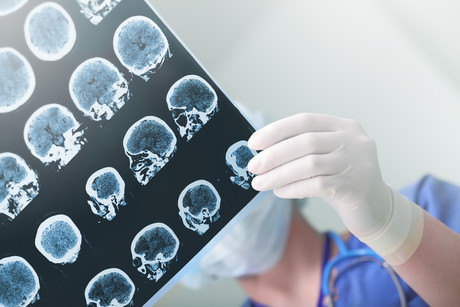Epilepsy drugs in womb linked to poor school results

Exposure to epilepsy drugs in the womb is linked to significantly poorer school test results among seven-year-olds, according to new research published online in the Journal of Neurology Neurosurgery & Psychiatry.
Women with epilepsy who need drugs to control their seizures are currently advised to continue taking them during pregnancy because convulsions can harm both mother and unborn child.
Several studies indicate that epilepsy drugs, particularly sodium valproate, taken during pregnancy, are associated with neurodevelopmental disorders, but few of these studies have been based on real-life circumstances (population data).
To try and address this, the researchers used routinely collected healthcare information from the Welsh Secure Anonymous Information Linkage (SAIL) databank and national school test (key stage 1) data to compare the academic performance of seven-year-olds in Wales born to mothers with epilepsy.
Prescription patterns were divided into categories: treatment with one drug (carbamazepine, lamotrigine or sodium valproate); a combination of several drugs; and no drug treatment.
Twenty (54%) of the 39 mums prescribed several drugs were taking sodium valproate, but there were 15 different drug combinations in all.
The results showed that children born to mums who had been prescribed carbamazepine or lamotrigine, or nothing, performed just as well as those born to mums of the same age and deprivation level, but without epilepsy (comparison group).
But those whose mums had been prescribed sodium valproate during their pregnancy performed 10.5 to just under 13% less well on all KSI tests than those in the comparison group.
And children born to mums who had been prescribed a cocktail of epilepsy drugs achieved worse results still. Their scores were 19–22% lower.
Excluding children with epilepsy and whose mothers smoked from the analysis did not materially change the results.
The researchers acknowledge that they weren’t able to account for certain potentially influential factors, such as the mothers’ IQ, weight or alcohol consumption; the doses of epilepsy drugs prescribed; or intake of folic acid around conception.
But their results echo those of other independent studies, they point out.
And they go on to say: “While this study highlights the risk of cognitive effects in the children of mothers prescribed sodium valproate or multiple [anti-epilepsy drugs], it is important to acknowledge that some epilepsies are difficult to treat without these treatment regimens.”
And they recommend: “Women with epilepsy should be informed of this risk and alternative treatment regimens should be discussed before their pregnancy with a physician that specialises in epilepsy.”
In a linked commentary, Dr Richard Chin of the University of Edinburgh’s Muir Maxwell Epilepsy Centre emphasises the importance of a study that is based on population data as this can be used to inform preventative/interventional strategies and help women to better understand the implications of epilepsy treatment while pregnant.
“By providing ‘functional’ outcome data from their study, the authors have now provided information that prospective parents may find readily tangible: it should be included in information given to women with epilepsy prior to pregnancy,” he advocates.
Voluntary assisted dying pharmacy practice update released
To support compassionate, compliant end-of-life care, Advanced Pharmacy Australia has released a...
NSW commits additional $2.8m for paediatric palliative care
The NSW Government has committed an additional $2.8 million to support a range of initiatives to...
Report card shows "alarming" levels of ramping
Ambulance ramping in some states is still double what it was five years ago, the Australian...









